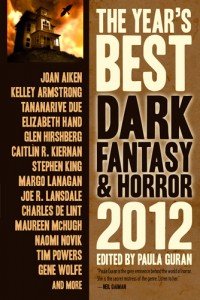 An Interview by Jennifer Konieczny
An Interview by Jennifer Konieczny
“Mysteries of the Old Quarter” by Paul Park will be appearing in Prime’s forthcoming Year’s Best Dark Fantasy & Horror: 2012 edited by Paula Guran. Pre-order here!
To borrow Dr. Delorme’s question, do you think “it possible that we are haunted in dreams by our beloved dead, not just in metaphor but in actual fact?”
I do think it’s possible. I think it would be foolish to be sure, one way or the other. I’m of an age now when I’ve lost some people who were precious to me, and when they appear suddenly in memory, or else unbidden in the mind’s eye, as clearly as if they had walked into a room where I was sitting, I must wonder if I am the only one who is responsible. How strange it is that we can see people so clearly, and not just in dreams, and not because there is some reason we have summoned them, or some chain of cause and effect that leads back to them. But in the midst of some other activity we can turn around and see them, and feel their presence, as if they’d put their hand upon our arm.
You said in an interview with Nick Gervers that on your first draft of Soldiers of Paradise you “ran out of energy after 80 pages or so, and realized what I had written needed a context, a larger setting,” so you moved to New Delhi. Would you recommend the same to other writers who run out of steam?
Sometimes you need a jolt. Most people, working at some worrisome task that requires perseverance and focussed energy, will find a place where it is counterproductive to work more. Problems can’t be solved sometimes by one continuous effort. And often when you’ allow or even force yourself to think about other things, a way forward will occur to you. And often something happens that’s completely a gift, a chance encounter or observation that provides a key. So actually abandoning a project, as I did with Soldiers of Paradise, is that writ large–when you come at the problem again, you’re a new person in a new context, and everything has changed. The book became a book that was in some sense about India, which obviously never would have happened if I had stayed where I was.